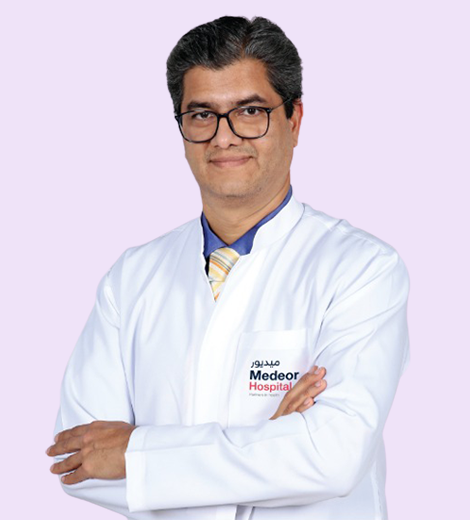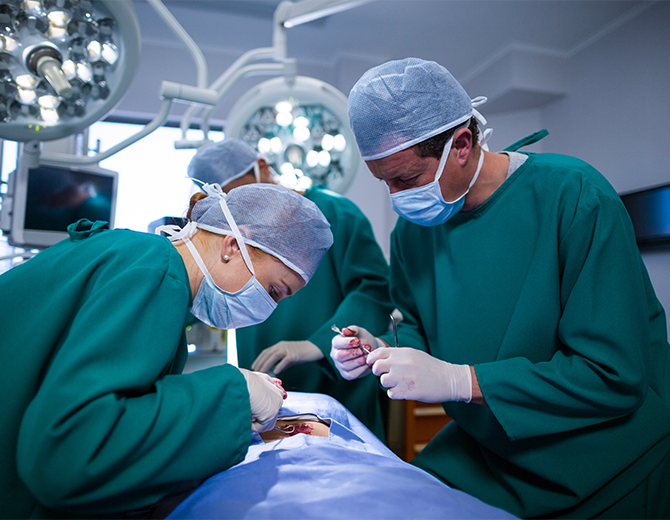Our Opening Hours Mon- Fri
Infertility due to endometriosis should be treated aggressively with surgery & assisted reproduction (IUI or IVF)
Our Opening Hours Mon- Fri
Endometriosis is a gynaecological disorder wherein the endometrium (the inner lining of the uterine cavity) implants outside the uterus in other parts of the body.
Gynecological Endoscopic Surgeon, Endometriosis Specialist, Fertility Specialist, Gynecological Oncosurgeon and Robotic Surgeon
D.N.B. , F.C.P.S. , D.G.O. (BOM) ,
D.G.O. (CPS) ,
D.F.P , M.I.C.O.G. , M.B.B.S.
Surgical Interventions
Satisfied Clients
Surgeries
Achievement
Year's of experience
Endometriosis can occur in various sites within the pelvic cavity, including the ovaries, fallopian tubes, outer surface of the uterus, and the peritoneum.
A clinical examination for endometriosis involves a pelvic exam to check for tenderness, masses, or abnormalities in the reproductive organs. It may suggest endometriosis, but a definitive diagnosis often requires imaging or laparoscopy.
Ultrasound can help detect endometriosis by identifying cysts, lesions, or abnormalities in the reproductive organs. However, it may not always detect deeper or smaller endometrial implants.
Infertility caused by endometriosis is typically treated with medications, surgery, or assisted reproductive technologies like IVF. Treatment options depend on the severity of the condition and the individual’s fertility goals.
Infertility due to endometriosis should be treated aggressively with surgery & assisted reproduction (IUI or IVF)
Wait & watch policy may result in disease recurrence / progression, repeat surgery & irretrievable damage to ovaries

There is no known way to prevent endometriosis, but early diagnosis and treatment may help reduce the risk of complications, such as infertility or long-term pain.
What Our Patients Say About Us Real experiences shared by those we've cared for.
Dr. Nagendra Sardeshpande performed laparoscopic surgery to treat endometriosis. He is highly skilled and one of the foremost experts in this field. He was always available to answer all our questions and made us feel comfortable and confident before, during and after the surgery. His dedication to the field and patient care is commendable. He visited the patient even during his busy schedule of traveling to different places for surgery and provided excellent care and line of treatment. We would highly recommend him for any gynaecology related issues.
Dr. Sonalee and her cousin, Dr. Tushna, are both excellent gynecologists. Dr. Sonalee has years of experience in her field and is the best gynecologist I’ve ever had. They are both very friendly and helpful. Her husband, Dr. Narendra, also practices at the clinic.
I would like to express my sincere thanks and gratitude to Dr Nagendra Sardeshpande who is expert in Obstetrician-Gynecologist, hysterectomy laproscopy surgery. Recently, my wife underwent with fibroid removal surgery from her ovaries in Medeor Hospital in Dubai. Thanks god she has been in the right hand of doctors Dr Elizabeth Mathew and Dr Nagendra. I strongly recommend anyone who wants to carry out any gyneco related surgery, please contact him. Excellent surgeon, pleasing personality and concern with patient. Great Doctor. Personal thanks and great salute to doctor
It’s a really simple and great hospital. The hospital staff is also cooperative and calm-minded. I recently had my wife’s fibroid operation there.
